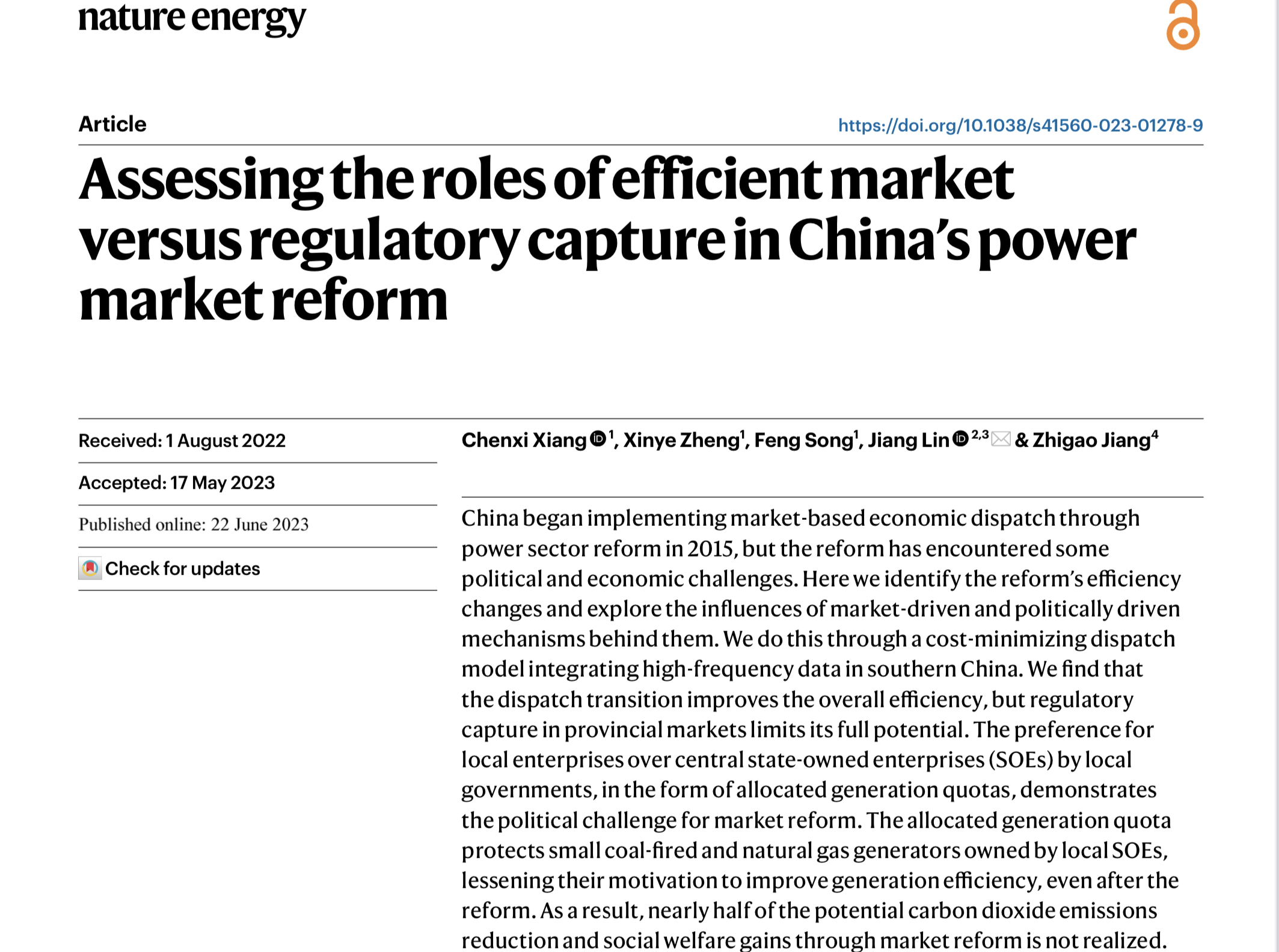Dr. Xinye Zheng and Feng Song recently had a paper published in the Nature Energy. The paper titled‘ Assessing the roles of efficient market versus regulatory capture in China’s power market reform’, was coauthored with Chenxi Xiang from Renmin University of China, Jiang Lin from University of California Berkeley, and Zhigao Jiang from Zhineng Consultant Company.

Abstract
China began implementing market-based economic dispatch through power sector reform in 2015, but the reform has encountered some political and economic challenges. Here we identify the reform’s efficiency changes and explore the influences of market-driven and politically driven mechanisms behind them. We do this through a cost-minimizing dispatch model integrating high-frequency data in southern China. We find that the dispatch transition improves the overall efficiency, but regulatory capture in provincial markets limits its full potential. The preference for local enterprises over central state-owned enterprises (SOEs) by local governments, in the form of allocated generation quotas, demonstrates the political challenge for market reform. The allocated generation quota protects small coal-fired and natural gas generators owned by local SOEs, lessening their motivation to improve generation efficiency, even after the reform. As a result, nearly half of the potential carbon dioxide emissions reduction and social welfare gains through market reform is not realized.
Other information
Publication Date:2023
Journal: Nature Energy
DOI: https://doi.org/10.1038/s41560-023-01278-9
Read the paper here.